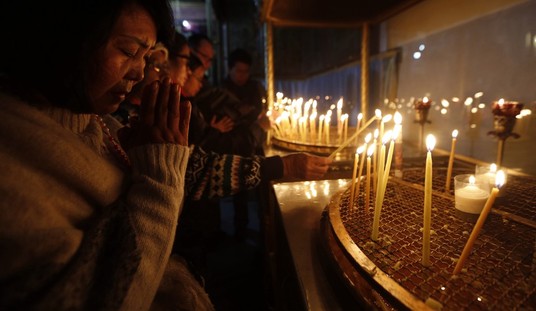Noah Shachtman at Wired reports that Iranian helicopters have carried out airstrikes on Kurdish villages in Iraq, the first since the US toppled Saddam Hussein.
Iranian aircraft attacked three villages inside Iraq over the weekend. The airstrikes — Iran’s first on Iraqi soil since the U.S. invasion — could complicate the Obama administration’s efforts to normalize relations with Tehran.
“The bombardments appeared to have targeted the Party of Free Life of Kurdistan (PJAK), an Iranian Kurdish separatist group which has launched attacks on Iran from rear-supply bases in the mountains of northern Iraq,” AFP reports. Iran has attacked the Kurdish group before, with artillery. But this is the first time the Iranians followed up, with assaults from the air.
The PKK and its offshoot, the PJAK has long been trying to play Turkey and Iran off against each other, while attempting to stay in the good graces of the US. A Wikipedia backgrounder on PJAK notes that it has presented itself as a possible instrument the US could use against Iran, and the US has been accused of yielding to the temptation.
On April 18, 2006, US Congressman Dennis Kucinich sent a letter to US president George W. Bush in which he expressed his judgment that the US is likely to be supporting and coordinating PJAK, since PJAK operates and is based in Iraqi territory, which is under the control of the US-supported Kurdistan Regional Government. In November 2006, journalist Seymour Hersh writing in The New Yorker, supported this claim, stating that the US military and the Israelis are giving the group equipment, training, and targeting information in order to create internal pressures in Iran. …
In August 2007, the leader of PJAK visited Washington, DC in order to seek more open support from the US both politically and militarily but it was later said that he only made limited contacts with officials in Washington. … In one of the first actions of the Obama administration, PJAK was declared a terrorist organization, freezing any assets the PJAK has under U.S. jurisdiction and prohibiting American citizens from doing business with the organization.
Obama’s decision to decisively cut loose the PJAK is probably driven by the desire to get in the good graces of both Turkey and Iran, for whom the Kurdish separatists are a bother. Until recently Teheran actually supported the PJAK’s predecessors against Ankara, according to some sources. But now both Turkey and Iran seem to have decided to jointly crack down on the PJAK according to a liberal think tank, the Washington Institute.
In the 1990s, the fact that Tehran provided safe haven to the PKK created problems for Turkey — a country whose secular democracy stands in diametric opposition to Iran’s regime. More recently, however, Tehran’s policy seems to have changed. Since 2003, Iran has been fighting PJAK in an increasingly effective bid to win Turkey’s support. These efforts help explain PJAK’s bellicosity toward Tehran. At the same time, Iran’s involvement in the PKK/PJAK problem has proven to be a successful public diplomacy tool, winning over Turkish public opinion. Unlike during the 1990s, when most Turks took issue with Tehran due to its support for the PKK and other issues (e.g., the assassination of secular Turkish intellectuals by Islamist terrorist cells), the Turkish media now portrays Iran as a friendly country that is helping Ankara against the PKK.
The Jamestown Foundation noted that the Bush Administration appeared to toy with the idea of using PJAK against Iran. That has now changed with the Obama administration. Ironically, it predicts that Iran will seek to keep PJAK alive in some form, returning to its former role as a sponsor in order to keep that corner of Iraq on the boil.
The PKK’s growing visibility in Iran and an acquiescent American attitude towards the PKK presence in northern Iraq (which came to be perceived as a de facto rapprochement between Washington and the PKK) pitted Iran and the PKK against each other. PJAK has increasingly engaged Iranian military personnel since 2003 in a bid to gain media attention. In response, Iran has occasionally shelled PJAK positions in the Kandil Mountain region. There were also unconfirmed reports from Kurdish sources of cross-border operations by Iranian security forces in September, 2007 (Today’s Zaman, August 24, 2007; McClatchy, August 23, 2007). Like Turkey, Iran preferred to present PJAK as an extension of the PKK and lent support to Turkey’s fight against the PKK. In this way it sought to boost its own popularity among the Turkish public and to undercut Turkish-American ties.
Although the Bush administration added the PKK to the list of designated terrorist organizations, it was more tolerant toward PJAK, which led to allegations that America and Israel supported PJAK as a way to destabilize Iran. [9] Shortly after coming to power, the Obama administration designated PJAK as a terrorist organization controlled by the PKK. By this decision, Washington signaled that it would adopt a more principled approach in the fight against terrorism. This development also signifies a change in the American attitude towards the intricate relationships between Turkey, Iran and the PKK.”










Join the conversation as a VIP Member